Cats in Crisis
Right now, there are approximately 100 million street cats in the world, on every continent except Antarctica.
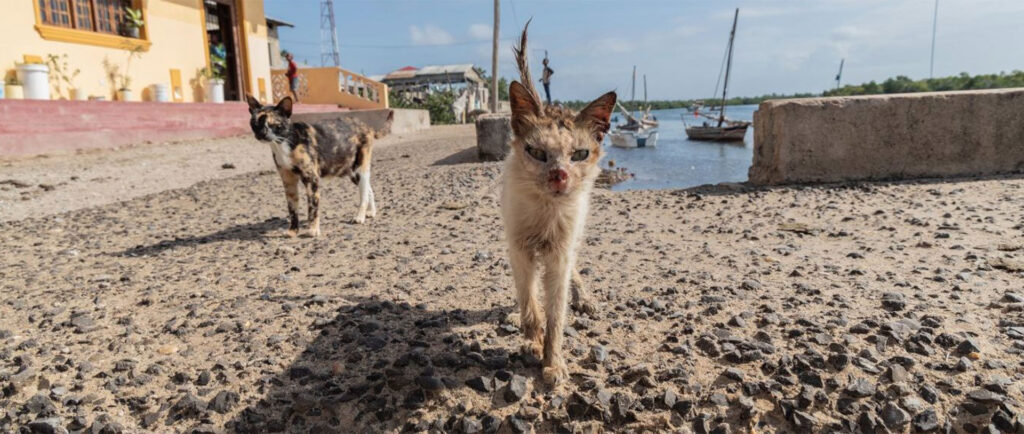
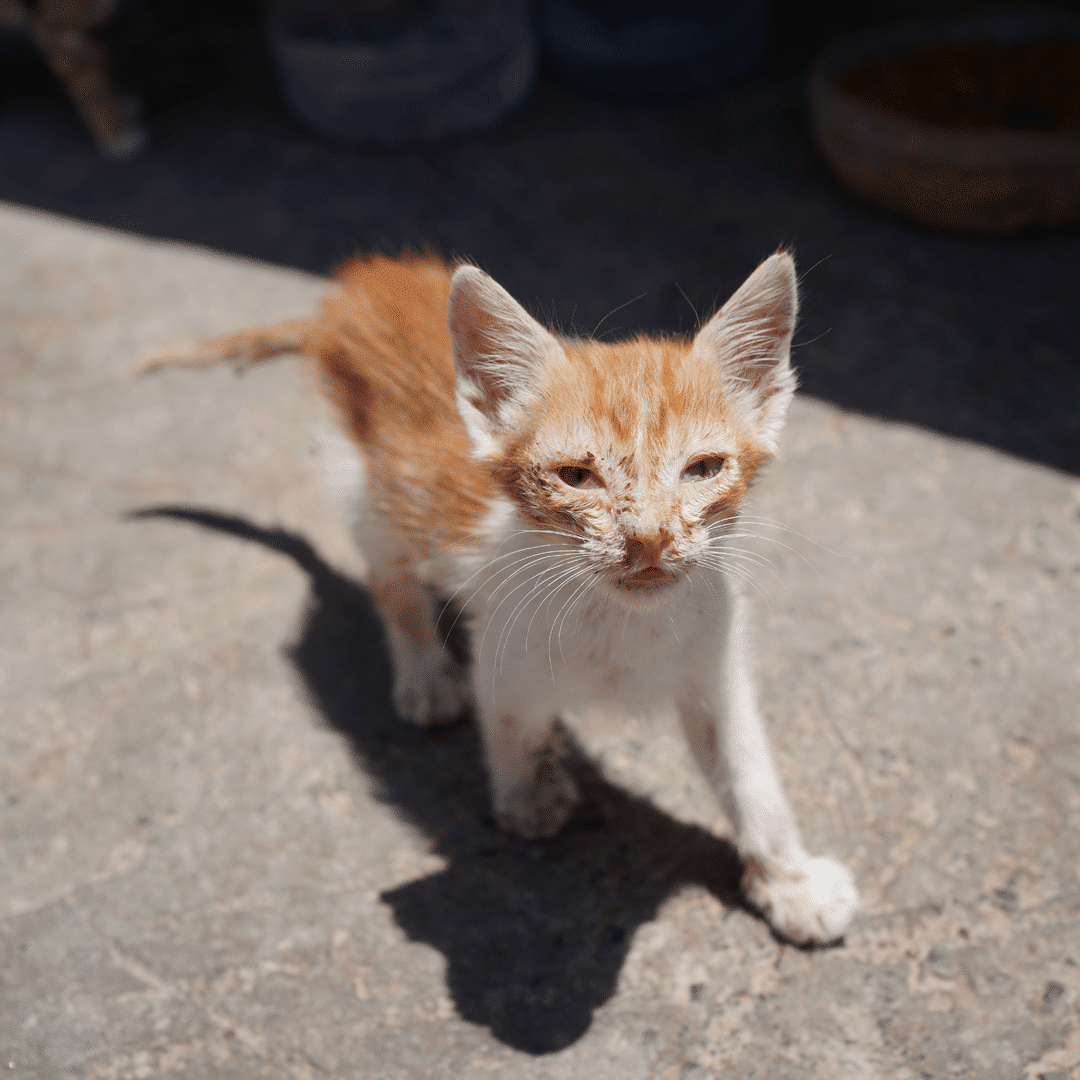
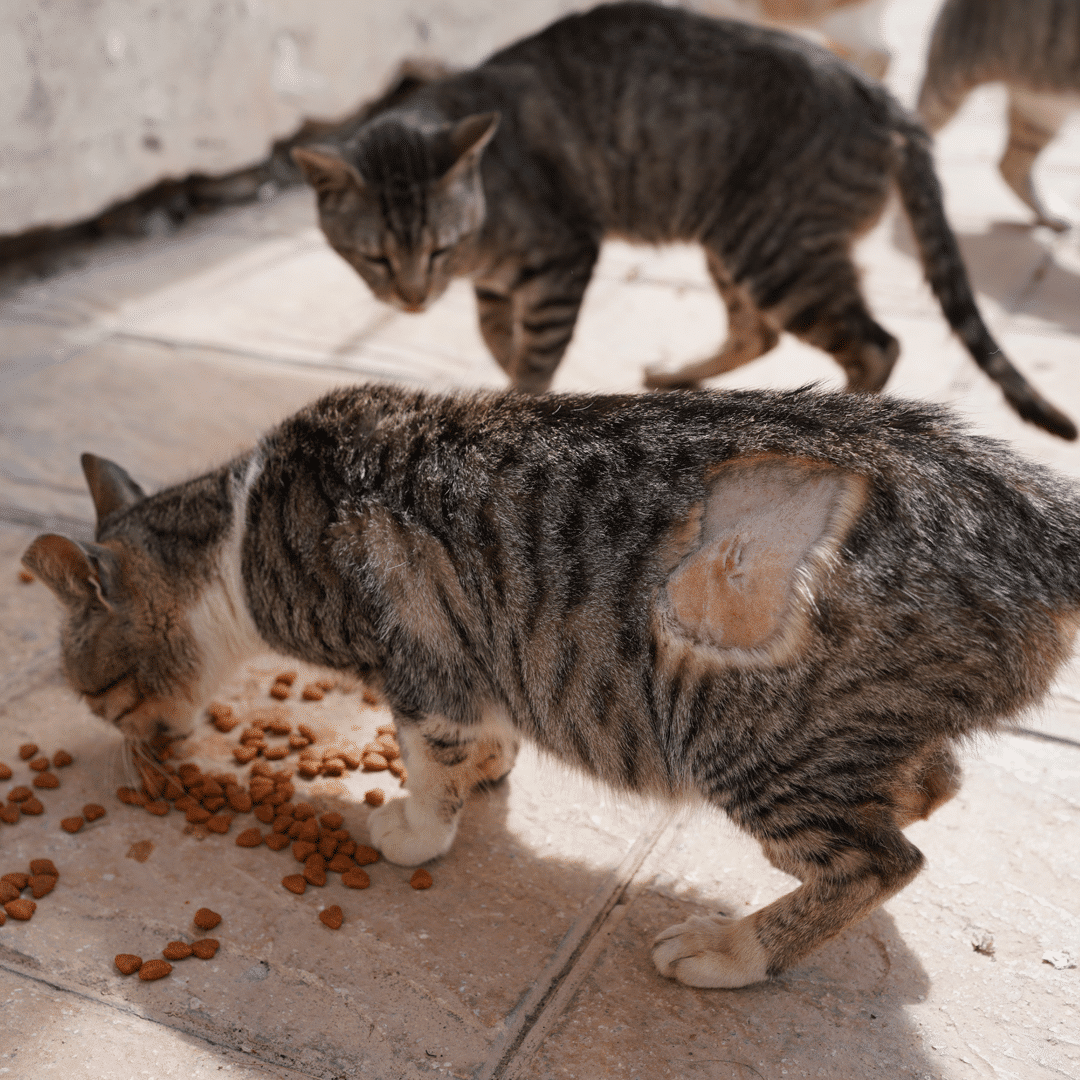

From treasure to trash
It is hard to believe that the same graceful creatures who were once revered in Ancient Egypt are now often discarded like rubbish in derelict areas across the globe. They have gone from royalty to poverty, from being dressed in jewels and even mummified upon their deaths to living with mange and ticks before dying alone on the streets. Fortunately, thanks to kind-hearted animal-lovers like you, some cats are extremely well cared for. Humans value them for their independence, devoted companionship, intelligence, and natural ability to hunt vermin and other household pests. Even so, the fact that there are 100 million cats who are not so lucky is a crisis.
Cats start breeding as young as five months, with high fertility rates allowing them to bear several kittens at a time, up to five times a year. They live between 12 and 14 years.
If not effectively managed, the population of street cats grows rapidly, and more and more will be born into lives of suffering. Street felines live in close proximity to each other, prompting the transmission of contagious diseases, parasites, and bacterial and viral infections such as Feline Immunodeficiency Virus (FIV). By providing critically needed food, financing vaccinations and running effective trap-neuter-return (TNR) programs, we give street cats a chance to survive and have some semblance of a decent life.
Through public awareness campaigns, it is our hope that pet owners will think twice before resorting to dumping their precious animals and that more individuals will become inspired by the mantra “adopt, don’t shop” when they consider adding a pet to their family.
NFA works to help street cats around the world. We support projects in Greece, Italy, Kenya, South Africa, Morocco and Zimbabwe.
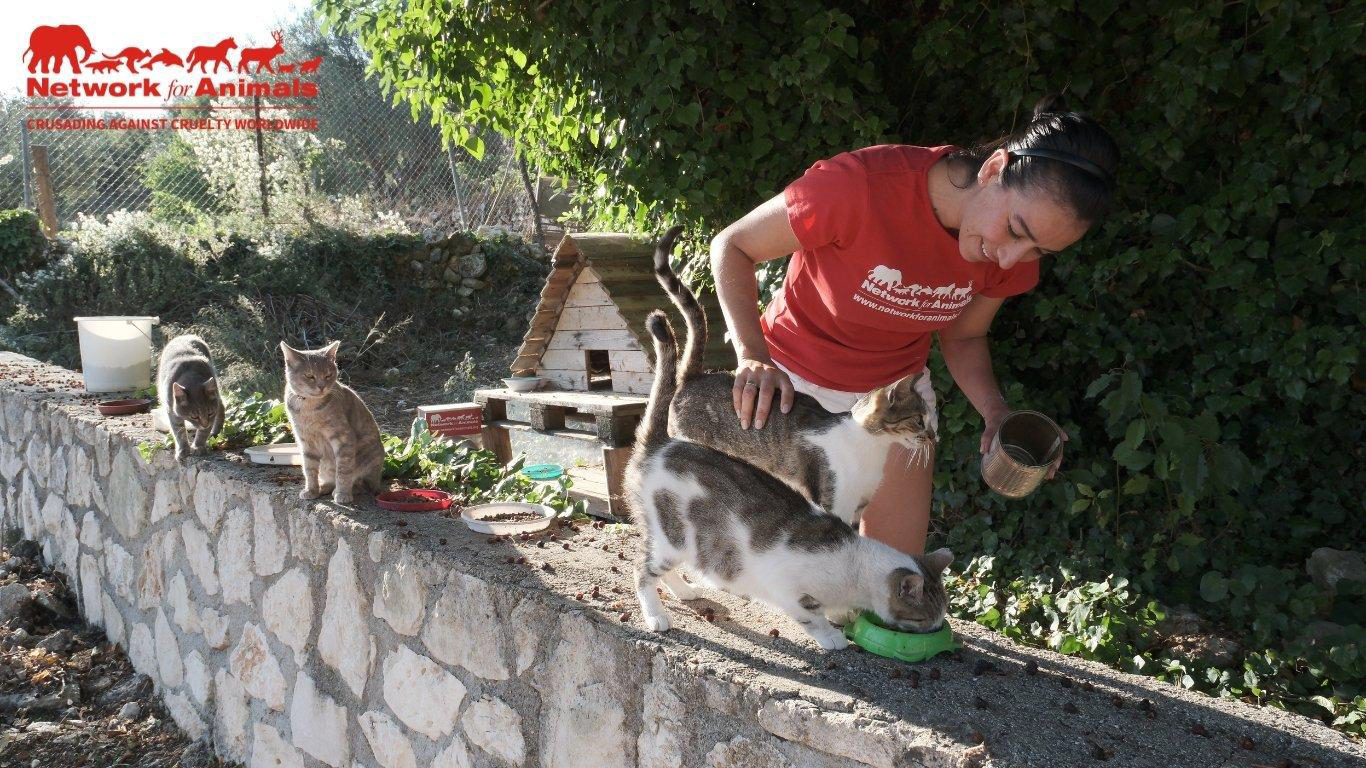

Greece
Cats of Ithaca and Kefalonia (CIAK)
In summer, life is easy for Greek street cats because tourists and restaurants feed them. Winter is always a much sadder story, when street cats see their food supplies vanish along with the tourists. The situation on the Greek islands is particularly severe because very few people spend winters there. Network for Animals funds spay and neuter programs and provides food and emergency medical care for 500 street cats in 14 small mountain villages around the year.
In July of 2024, we were alerted to a pressing crisis for street cats on the island of Kefalonia. Parasites were tearing through the population, causing immense suffering. We knew that when winter struck, infected cats and kittens would likely die, so we took action. We administered internal and external anti-parasite treatment to 340 cats, flea and tick tablets for 40 cats, and eye infection droplets for 10 more, peparing them from survival during the harsh winter months.
In 2025, we launched a sterilization project that saw 51 cats sterilized from January to March. Our next sterilization campaign is planned to begin in June 2025; we are aiming to spay and neuter around 56 cats, breaking the cycle of suffering.
On the island of Ithaka, fabled as the home of Odysseus, the ancient hero of the Trojan War, we provide grants to help the island’s cat population and we neutered 100 cats between January and March.
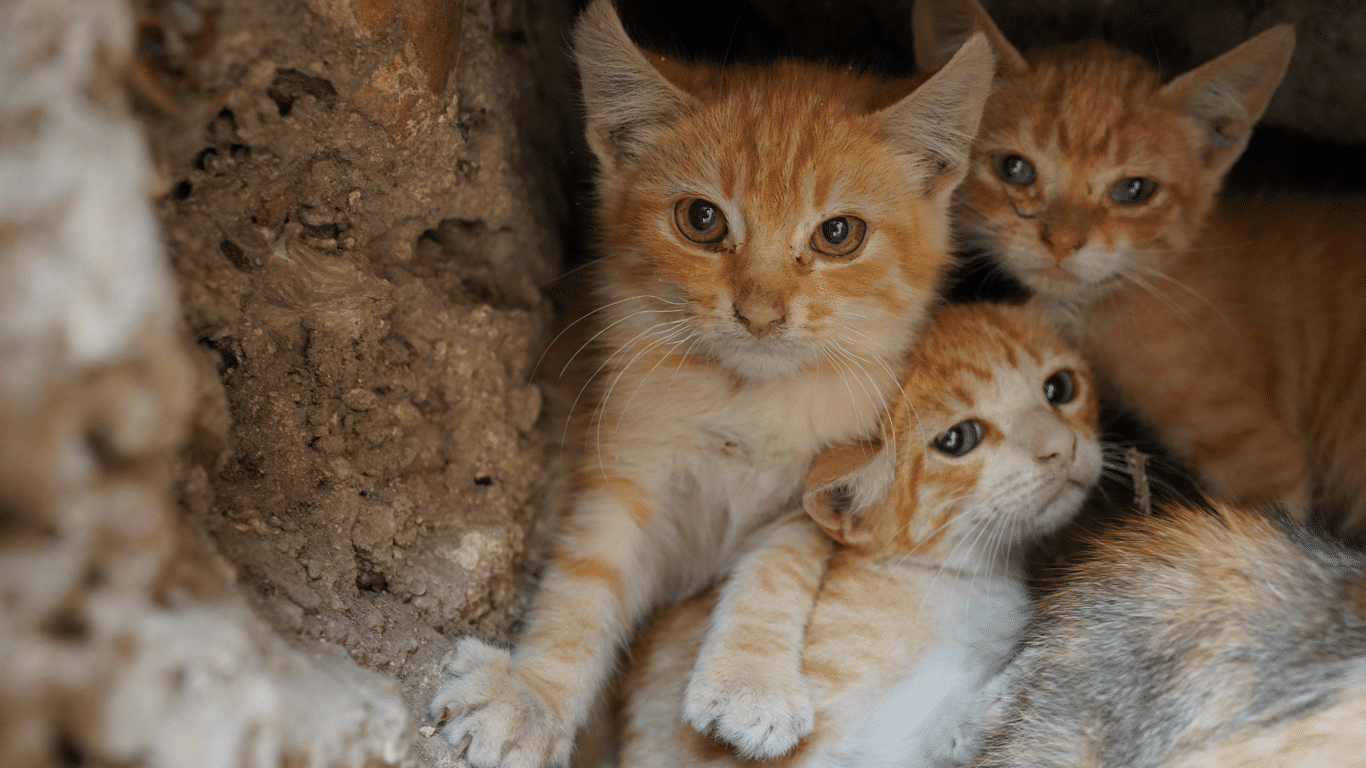

Morocco
Street Cat sterilizations
In Témara, Morocco, street cats are breeding at an uncontrollable rate. Local communities often turn a blind eye to the suffering, and with each new kitten born, another helpless animal is condemned to a life of disease. As an unspayed cat can produce up to five litters each year, there is an uncontrolled and explosive growth of cats fighting for survival on Morocco’s streets.
The only way to prevent long-term suffering is through sterilization. Together with our partner, Kawthar Cats, we embarked on a mass sterilization project, preventing even more kittens from being born into a life of misery.
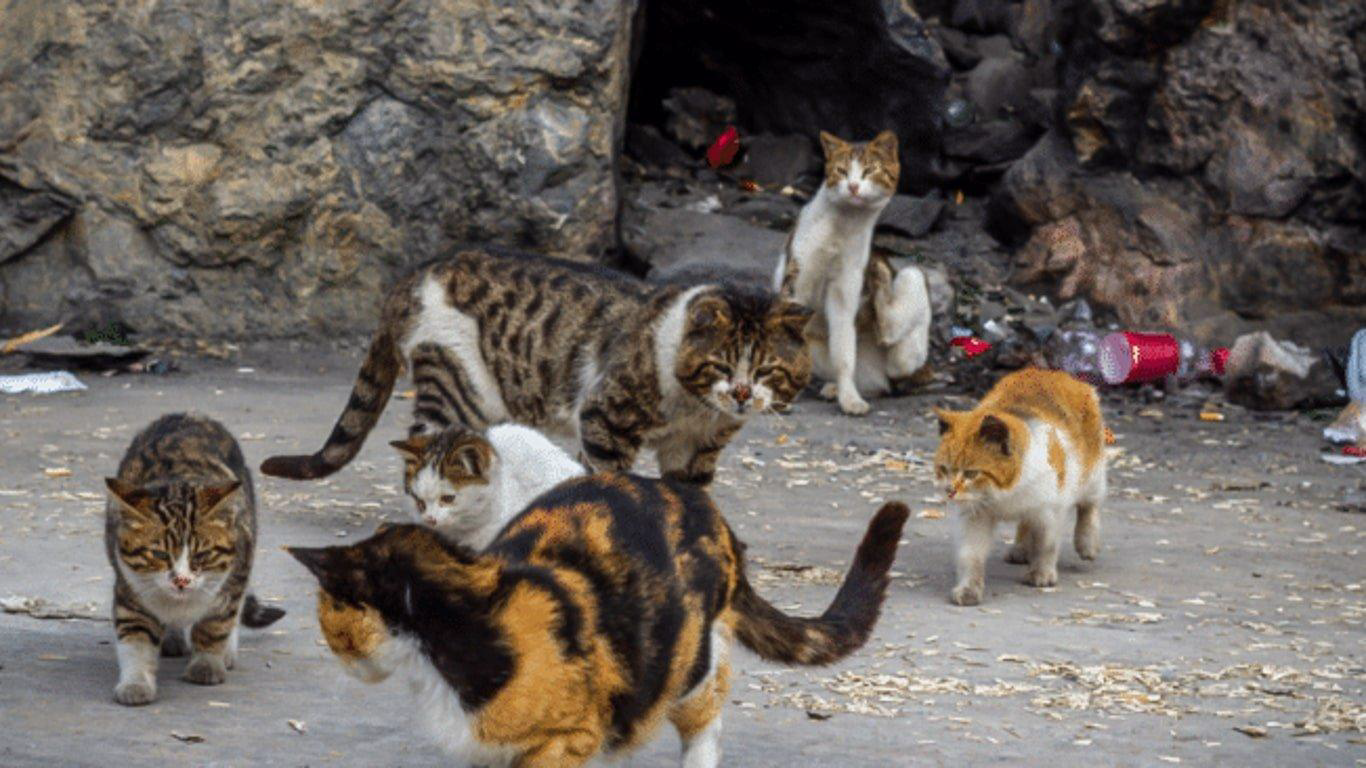

Italy
Street cats of Paciano
For seven years we have been feeding street cats in Paciano, Italy gradually expanding our efforts to surrounding rural areas, where dwindling populations have led to people abandoning their cats and moving away We are also helping with sterilizations when the local authorities have no services nearby.
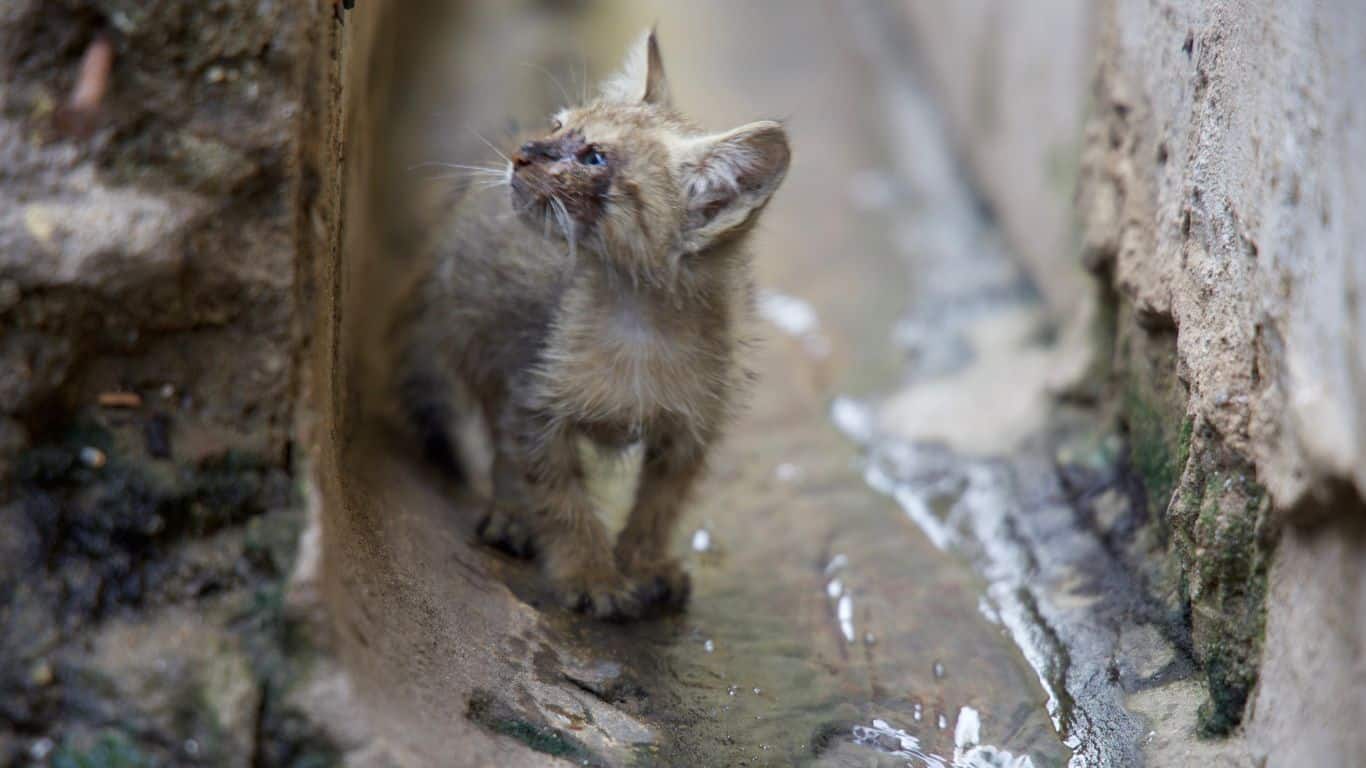

Kenya
Unwanted cats of Lamu
In Lamu East, Kenya, countless unwanted cats and kittens lead miserable lives of hunger, neglect and pain on the streets. With not a single shelter or veterinary clinic and no government help, street cats are left to breed unchecked, resulting in a deadly population boom and immense suffering for the animals. Together with a skilled team of local veterinarians, NFA conducts regular trap-neuter-release (TNR) programs to end the tragic cycle of birth, disease and death for Lamu East’s street cat population.
In 2025, we were alerted to a crisis at the Nairobi Feline Sanctuary (NFS), home to around 600 cats – facing missing several rent payments due to severe financial distress, the cats were facing eviction and needed urgent help. Network for Animals secured an extension on the eviction deadline by covering the outstanding rent, but we knew we needed to find a sustainable solution, and identified a property that would make an ideal permanent home for the cats. Powered by our supporters, our team is building a new sanctuary and is making excellent progress – the mothering unit is complete, 400 cats have already moved in and construction is well underway on the main unit, as well as a quarantine bay and a play area.
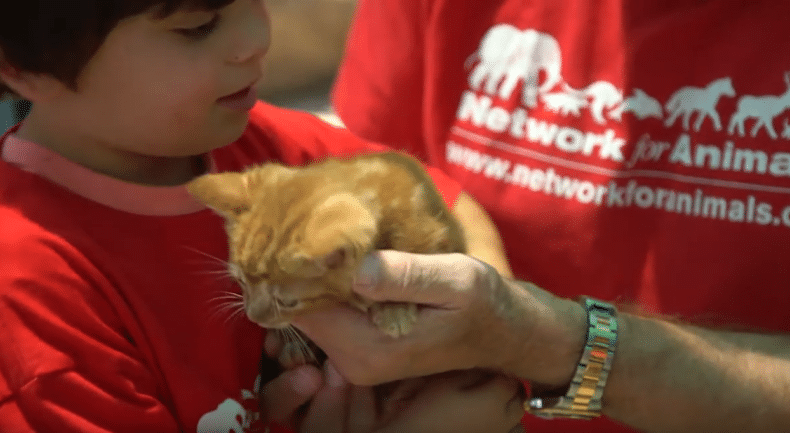

South Africa
Rescued from poverty-stricken areas
Network for Animals supports the TEARS Animal Rescue Cattery in Cape Town, South Africa, which cares for around 150 cats at its shelter, by providing funding for much-needed food, vital search and rescue missions, and veterinary care. All the cats in TEARS’ care have been previously abandoned, abused or neglected, often rescued from the city’s poverty-stricken township areas.


South Africa
Starving cats in calvinia
In the impoverished farming town of Calvinia in South Africa, hundreds of dogs and cats are suffering the effects of a devastating, years-long drought. The drought has destroyed this Northern Cape farming community, leaving both people and animals starving.
We work with partners on the ground to sterilize the animals of Calvinia’s Blikkiesdorp township while providing critically needed veterinary care, treatment and food to the hundreds of dogs and cats who call the area home. Since our work began there in 2021, we have helped bring hundreds of animals back from the brink of death, conducted several mass sterilization drives, and delivered literal tons of pet food. We continue to work closely with the community to help keep their animals healthy and fed.
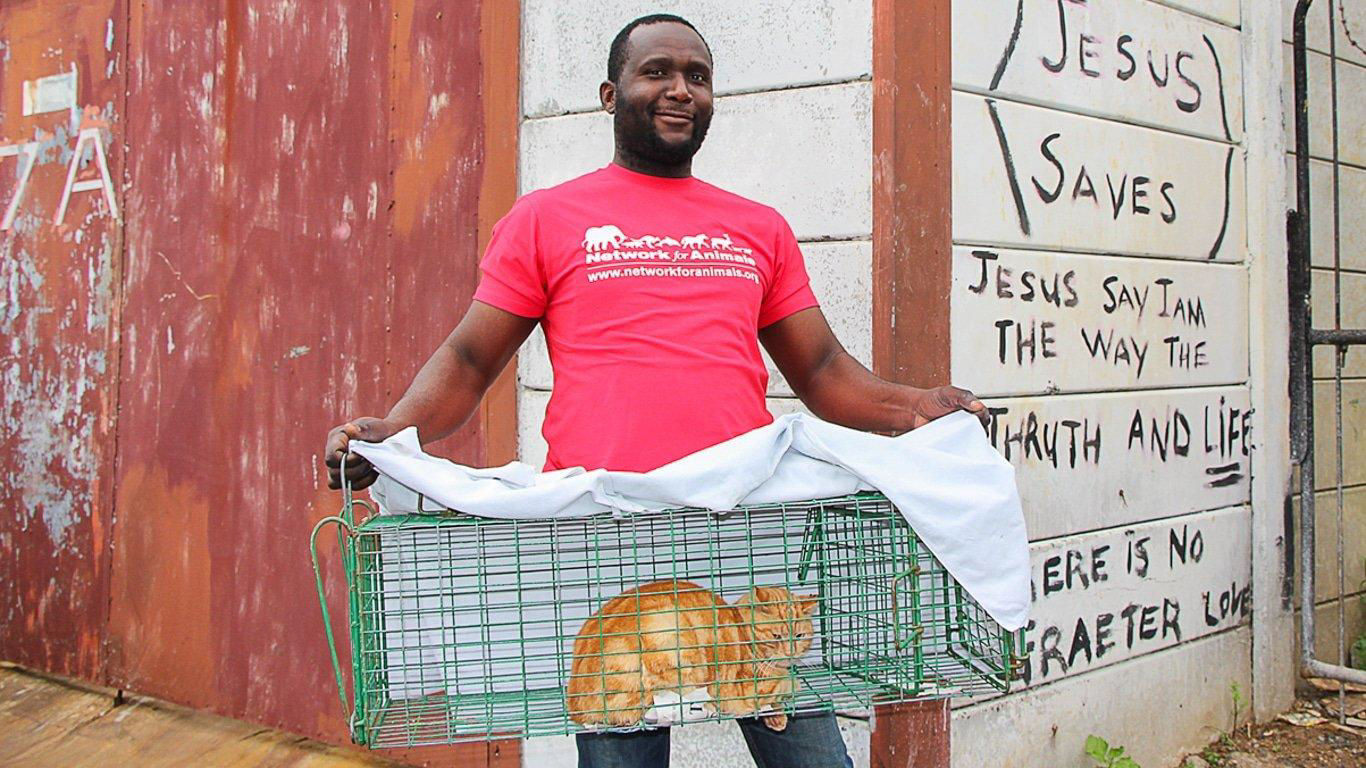
Cat Trapping and Sterilization Network (CTSN)
In Cape Town, South Africa, we support the work of CTSN which cares for feral cats in industrial areas.
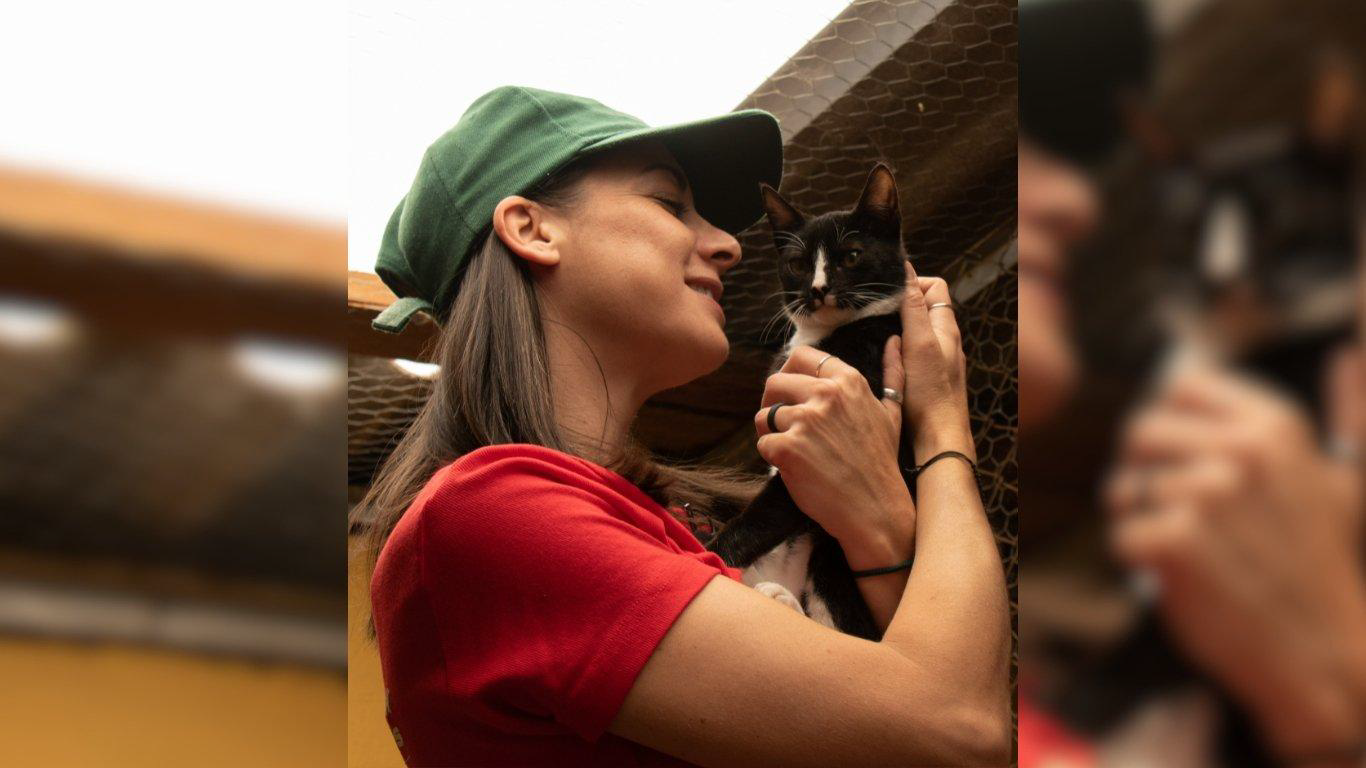

Zimbabwe
Neglected cats
The dire economic situation in Zimbabwe has left countless animals sick, starving, homeless and dreadfully neglected. We support the Friend Animal Foundation (FAF), which cares for around 600 unwanted cats and dogs in Bulawayo, Zimbabwe. We took responsibility for FAF when it faced closure and are now financing care for all its animals while working towards enabling the organization to be self-sufficient.
We also support feeding, sterilization and treatment programs in Harare and Bulawayo to improve the lives of the cities’ street cat populations.
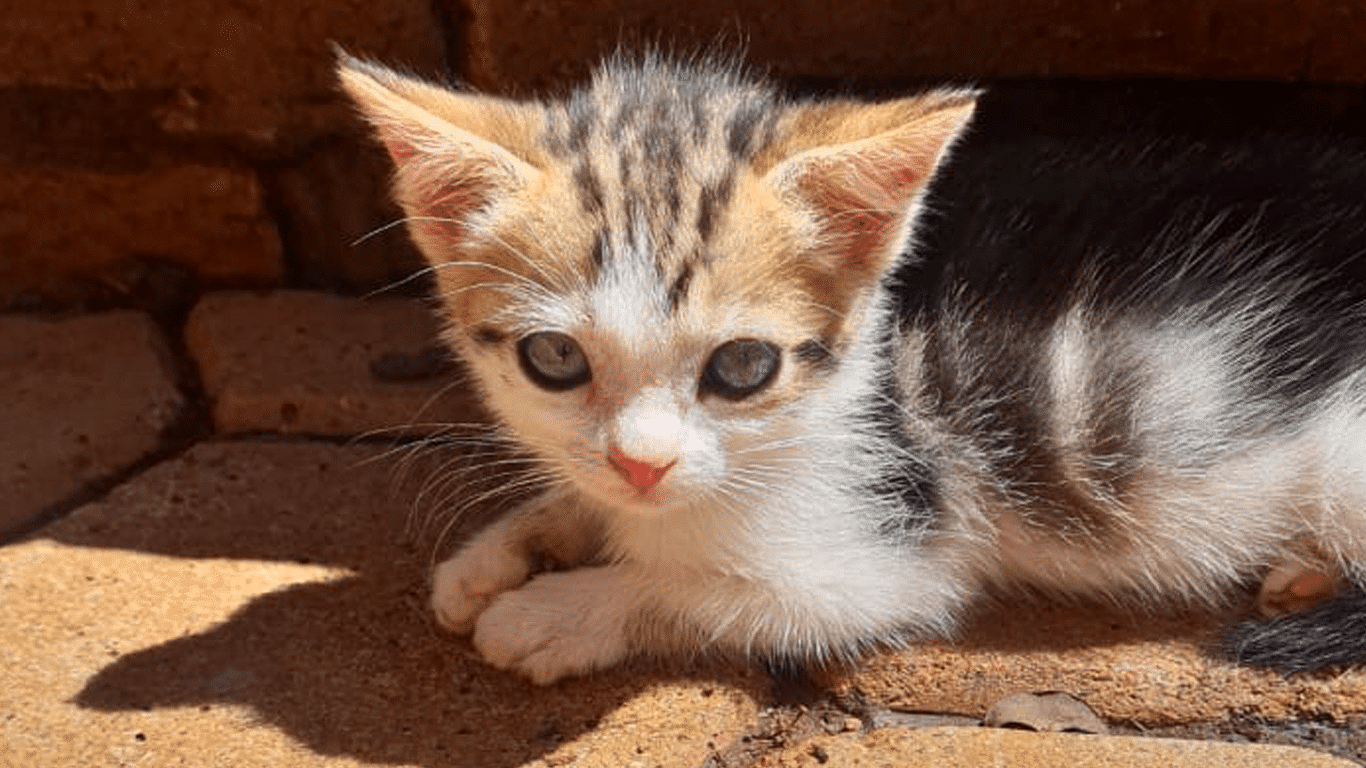
Matabeleland Animal Rescue (MARES)
The founder of our long-term partner, the Matabeleland Animal Rescue and Equine Center (MARES) in Bulawayo, established the MARES Community Cat Sanctuary (MCC) in 2023. MCC is the only animal shelter in Bulawayo that actually cares for cats and kittens; the local animal shelter usually euthanizes them as soon as they are brought in.
